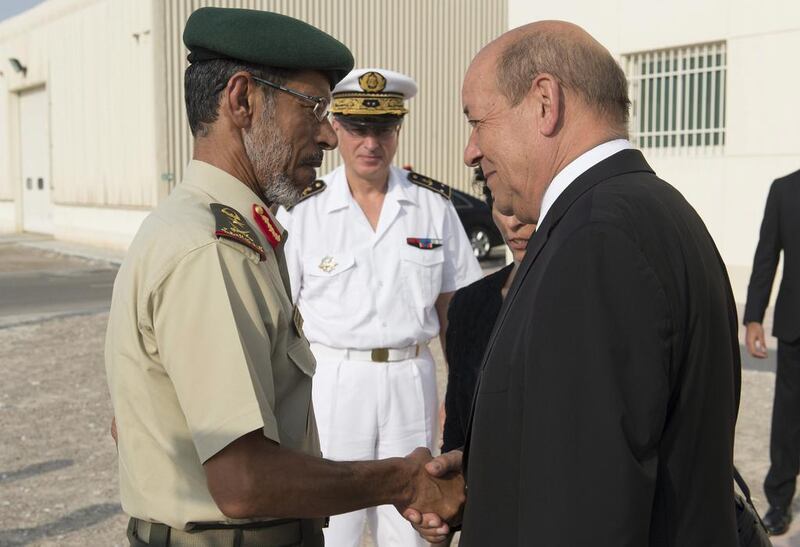Air strikes have begun against the militant group. But more than a military solution will be needed
After much talk, the battle has begun.The United States and its Arab allies – a Pentagon statement said five Arab countries, including Jordan, Saudi Arabia and the UAE – launched air strikes against ISIL in Syria on Monday night. Most strikes appeared to target the militant group’s stronghold of Raqqa in north-eastern Syria, but there were also reports that the US had struck as far south as Deir Ezzour and as far west as Aleppo.
The drama of the event – the exhilarated language of analysts and the dramatic news footage of fighter jets taking off – should not mask either the seriousness of the endeavour or its consequences. There will be casualties among ordinary Syrians; such fatalities are almost unavoidable with ISIL embedded in civilian areas. It is as important to feel sympathy for those caught in the middle of this war as it is to feel revulsion for those who forced it upon the region.
And it is, when all is said and done, a regional war. The US has made much play of its Arab allies. It was, after all, the Arab world that was calling for something to be done about the Syrian civil war and then the growth of ISIL – and it was the US that was hesitant to act. So this is not a war imposed by the West; rather it is a war imposed by ISIL.
The importance of Arab allies should not be underestimated. For reasons of logistics and intelligence, allies such as Jordan are vital. But there are also other reasons, almost as critical, of perception.
The first is that, from the perspective of western publics, it is important that the Arab world be seen to do its part. But more vital is the perception in the wider Arab and Muslim worlds. When Saudi Arabia – whose ruler King Abdullah is, after all, the custodian of the two holiest sites in Islam – is seen to be part of the coalition, it reveals the ludicrous claim of the thugs of ISIL that they are a caliphate for what it is.
The perversion of ideology and religion that ISIL represents poses a real danger to the region. It is not an ideology that will easily be defeated. Air strikes are a first step – and, for all the pain and suffering it will bring, an essential one – but it is not the end.
Air strikes can only degrade ISIL, not destroy it. Beyond air strikes, beyond even other military power, the only solution will be political and intellectual. Political because it is only by keeping Iraq together, and repairing Syria, that the region will be made whole. Intellectual, because the cancer of ISIL’s thinking must be tackled by ideas. But for now, the first step towards removing this mutant caliphate has begun.





